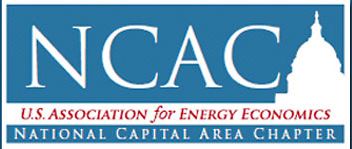NCAC-USAEE – The Role of U.S. Natural Gas Exports in a Low-Carbon World
The U.S. liquefied natural gas industry has many global opportunities for growth. To fully realize these opportunities, the industry must overcome regulatory bottlenecks around permitting infrastructure (which affect financing and timelines) and build diverse coalitions that meet the needs of multiple stakeholders. The industry should also address environmental concerns and reducing greenhouse gas emissions (including methane emissions) across the value chain, which will help create a social license to operate, and create more supply by eliminating losses that occur from venting and flaring.
Rick Westerdale will present the key findings from EFI Foundation’s recently released report titled “The Role of U.S. Natural Gas Exports in a Low-Carbon World.” The takeaways emerged from the workshop held in Washington, DC that convened a diverse set of stakeholders. Five of the findings apply to natural gas challenges in the United States (including tackling methane leakage and permitting new projects), and two of which bridge domestic and international issues by focusing on the interconnectivity of global natural gas markets and the United States’ role as the preeminent global supplier. The remaining two takeaways focus on Europe’s and Asia’s natural gas needs.
If the United States can overcome these challenges, it can demonstrate its leadership and provide energy for its allies and trading partners in Europe and Asia. Though Europe may be the primary consumer in the short term, the U.S. natural gas industry should continue to engage with and provide affordable and reliable gas to both the developed and developing countries in Asia, which should be long-term consumers of natural gas for their own energy security and decarbonization goals.

Contribute to this discussion
You must be logged in to post a comment.